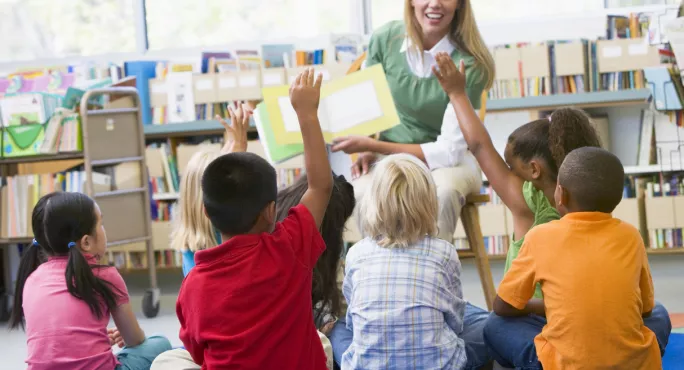It’s a familiar and depressing sight.
At a small table, six Reception children are toiling away with their teacher, writing sentences.
Meantime, the rest of the class are choosing from the play equipment around the class and outside.
Read more: Five questions we need to ask about EYFS
From the magazine: 4 ways to make the transition to primary subject lead
Listen: Why we’re doing too much, too young in education
At the table, many of the children might have a very uncomfortable pencil grip. Some might not have good pencil control and struggle to form their letters.
The teacher might be sounding out words like “mum” and then helping the children to identify and write those three letters.
By the time they have done this sounding-out and written a few words, some children have forgotten what they wanted to write in the first place. They are losing their enthusiasm for writing. They aren’t good at it, and they don’t feel good about it.
So, it’s no surprise that the most recent large-scale basic skills survey in England found that one in every 20 adults never writes on paper.
When you include texting and emailing, 3 per cent of adults say they cannot write, or their writing is poor. Clearly, children who get off to a bad start with writing may never recover.
How should we teach writing?
The Education Endowment Foundation’s report Preparing for Literacy offers useful guidance. We should prioritise children’s communication in the early years. That’s one of the best ways to help them to become fluent readers and writers later in life.
Sometimes, those children toiling away at their writing don’t yet speak in sentences. Yet we expect them to write them.
Other children have not yet mastered the large and small motor skills they need. Or they don’t yet understand the directional language you need to learn letter formation, like up, down, round and back.
So the early years curriculum in schools should be carefully planned and sequenced. Many children need help to develop their communication and their physical skills. They need that teaching first, so they can learn to write sentences fluently next.
Yes, there is an Early Learning Goal for writing, but that doesn’t mean that every child has to be writing sentences in the early days in Reception. We need to stop treating the Early Learning Goals as if they are the curriculum.
Catching up is key
Children who are “not yet ready to write” need intensive support with their communication and physical skills. They need help to catch up.
If they are crowded around a tray with hardly any sand, little equipment, and no adult joining in, they are being occupied, not educated.
Play in the early years needs to be of the highest quality. Adults should be interacting all the time, in natural ways: listening, conversing, modelling new and rich vocabulary.
They should be guiding children to develop their physical skills. This is the step-by-step learning that children need, so they can become accomplished young writers.
Literacy rates are improving in England. But there are still many children and adults who lack the basic skills and confidence they need.
Let’s stop wasting little children’s time with writing tasks they can’t do.
Dr Julian Grenier is the headteacher of Sheringham Nursery School and Children’s Centre. He co-leads the East London Research School





